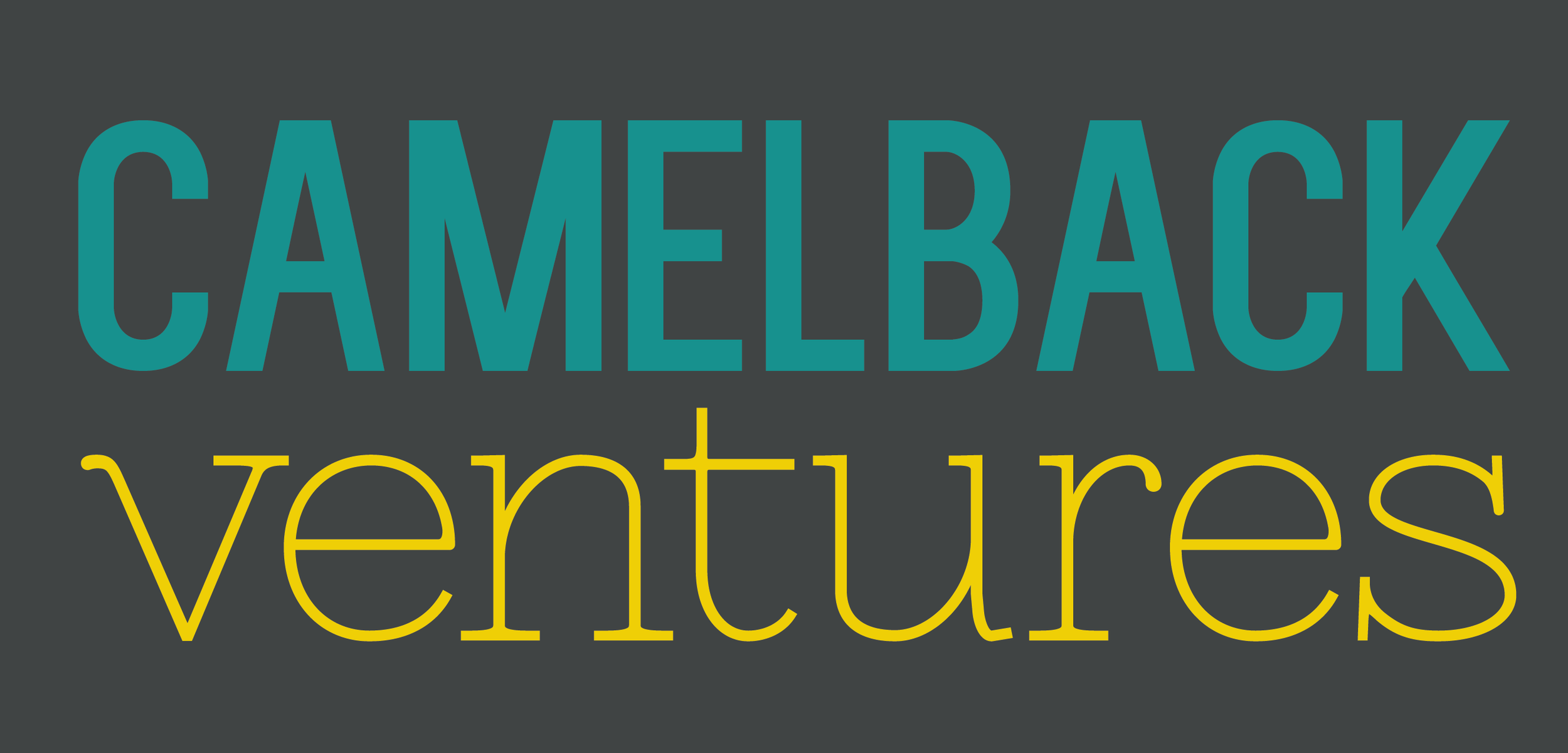The Senseless Rollercoaster: My worst fundraising experience as an Afro-Latina Founder.
By: Yulkendy Valdez, Social Entrepreneur, DEI Champion, and 2018 Camelback Ventures Fellow
Editor’s note: In 2019, foundation giving totaled $76-billion. Black and Latinx founders received approximately only 4% of that $76-billion, despite making up 29% of the population. In this thought leadership piece penned by Yulkendy Valdez - 2018 Camelback Ventures Fellow and Alumni Advisory Member to the Capital Collaborative by Camelback Ventures - shares her frustrating funder experience while attempting to secure her first investment. Yulkendy’s story is one that is sadly all too familiar for the BIPOC founders Camelback Ventures supports .
_________
The summer before my senior year of college, I made the most irrational but sensible decision a hopeful borderline Gen-Z/millennial can make: I declined a consulting job offer, with a stable salary and attractive benefits, to launch a social venture.
All I needed to do was fundraise my initial seed funding. I was a bright-eyed college senior with optimism and hunger to tackle our country's most urgent challenges. I also had much to lose as a first-generation college student and low-income immigrant from the Dominican Republic. Moreover, as an Afro-Latina from St. Louis, Missouri - living between the "¿Que lo Que?" or "!Ya tu sabes!" and "Dear John, I hope this email finds you well," asking the traditional funder, typically White and male, for money was alienating and shame-inducing.
One day, my co-founder and I got the opportunity to pitch a high-net-worth individual. We were both experiencing the "start-up butterflies"- the aspirational feeling you get where you know you might be entering a life-changing moment for your business, but at the same time, an anxious feeling that you might fail.
We entered the room where we met a friendly, White, older man ready to listen to our pitch. He was known for investing in young entrepreneurs. We presented our business, but before we finished, he asked: "Is $40,000 enough to get you started?" I couldn't hide my grin, which was probably the size of the Brooklyn Bridge. Bingo! We received our first investment, which would give us a few months of runway to start working on our business full-time.
Days, then weeks, then months passed by. My grin transformed into a groan. We reached out to his office, and he went from being super available to a booked calendar. We finally got a hold of him, and my co-founder even traveled to visit his office in New Jersey. Albeit an easy train from New York, but it felt like many miles traveled from where my co-founder grew up in an attic apartment in Queens. Again, the funder apologized for the delay and promised to send us a check.
The check never came.
It was almost a year of gaslighting and wealth gatekeeping. I remembered crying in the LAX airport and sending the funder an angry email - hoping that the funder would understand the power dynamics and the White privilege he was wearing as his perfume. It was the same day I got an email from one of the most credible business magazines saying we were taken out of an article - after spending lots of money to travel to their studio in Soho for a daylong photo shoot. Perhaps, they already had met their Latino quota.
The worst part is that we did not ask this funder for $40,000. We were planning to ask for a $5,000 investment to fund our lodging and other basic needs for the first three months of the business. What the funder hoped would be "charitable" became harmful to two first-time founders of color.
Although I decided to tell you about my worst funding experience, it doesn't shadow the fantastic experiences I’ve had with highly effective funders and investors. These experiences emphasized radical transparency over White fragility and avoidance. They emphasized constructive feedback over a "pat on the back" or microaggressions regarding how articulate we were. They emphasized timeliness and respected a "quick no" over a "maybe yes." They emphasized actual sponsorship and allyship over saviorism and heroic words. These positive experiences must become normalized so that no other founder goes through the senseless rollercoaster I went through while securing my first investment.
_________
The Capital Collaborative by Camelback Ventures works with White funders and social impact investors who want to deepen their individual and organizational commitment to racial and gender equity in philanthropy — but may not know how. You can learn more about how to get involved by submitting an interest form for the Capital Collaborative’s 2022 cohort or signing up for the newsletter.


